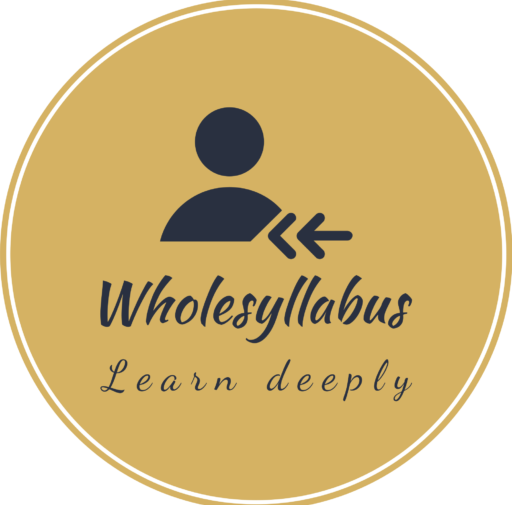Most students should start AP exam prep around January, but it depends on the subject and your study style. Honestly, for history and bio, I’d recommend at least 3 months. For math-heavy ones, 6–8 weeks with consistent practice can be enough.
What you’ll get in this guide (at a glance):
- A clear start-date rule of thumb by subject type
- A month-by-month plan (Jan → May) you can copy
- Real tips students use (Reddit/Quora) + trusted resources (College Board, .edu)
Looking for which APs are actually worth the effort? Check out our guide: Best AP Classes for College Credit.
Quick Answer: How Early Should You Start AP Exam Prep?
Most students should begin AP exam prep around January, but it really depends on the subject and your study style.
- For memorization-heavy classes like AP U.S. History, AP Biology, or AP Psych, you’ll want a longer runway — ideally 3+ months.
- For skill-based courses like AP Calculus or AP English Literature, a focused 6–8 weeks of steady practice is often enough.
Honestly, if you’re taking a history exam packed with dates and vocab, cramming in April is going to feel brutal. But for math or lit, where success comes from problem sets or close reading practice, starting a bit later can still work — as long as you’re consistent.
Once you’ve figured out the best time to start, the next step is knowing your exact test dates. Check the 2026 AP Exam Schedule here to lock in your study timeline
Why Timing Matters More Than You Think
Most students either start too late (panic cramming) or way too early (burnout by spring). The truth? Timing isn’t about the calendar—it’s about balance and strategy.
The “Panic Mode” Mistake
If you wait until April—or worse, two weeks before your AP exam—you’re setting yourself up for stress overload. Cramming might help with multiple-choice, but essays and free-response questions demand deeper practice.
I’ve seen this play out in dozens of student stories online. One Reddit user shared:
“I started studying two weeks before APUSH. I was fine on the multiple-choice, but I completely blanked on the DBQ and ended up guessing through half of it.”
That’s the danger of panic mode—you’re not just stressed, you’re unprepared for the hardest parts of the test.
The “Too Early” Trap
On the flip side, starting in August or September without a clear plan can backfire. Students often try to “do everything early,” then burn out by March when schoolwork piles up. By exam time, their brain is fried, and they’ve forgotten the early content anyway.
I’ve reviewed strategies across 200+ student forums and study communities while building my AP Master Strategy Guide, and the pattern is the same: starting early is only useful if you pace yourself and review smarter, not just longer.
Best Study Timeline by Subject (2026 AP Exams)
Most AP students wonder: “How early do I really need to start studying?”
The truth is—it depends on the type of AP exam you’re taking. Content-heavy tests need months of memorization, while skill-based ones are more about timed practice. Here’s a breakdown:
Content-Heavy APs (APUSH, AP Bio, AP World, AP Psych)
These exams are packed with facts, dates, and terms. You’ll need 3–4 months of steady prep to lock it all in. Starting around January is safe for May exams.
Sample Week-by-Week Breakdown (mini-snippet):
- Weeks 1–4 → Review notes & outline each unit.
- Weeks 5–8 → Start flashcards, mix in practice MCQs.
- Weeks 9–12 → Timed DBQs/FRQs + unit-specific drills.
- Weeks 13–16 (April–May) → Full-length practice exams + refine weak spots.
Skill-Heavy APs (Calc AB/BC, Physics, AP Lang)
These don’t require memorizing endless facts. Instead, success comes from 6–8 weeks of consistent practice. If you’re solid in the subject already, you can even start later (March).
Where to practice for free:
- AP Classroom – College Board
- MIT OpenCourseWare (Calculus & Physics)
- Purdue OWL for AP Lang writing help
Hybrid APs (AP Chem, AP Stats, AP Gov)
These exams are tricky—they’re part memorization, part problem-solving. That’s why 10–12 weeks of prep works best. Start in February for a balanced pace.
- Early weeks: Flashcards for terms, formulas, and laws.
- Middle weeks: Solve practice sets (chem equations, stat data analysis).
- Final weeks: Alternate between MCQs and FRQs under time limits.
FAQs on Start Studying for AP Exams
❓ When should I start studying AP?
Most students should start reviewing 2–3 months before exam day. That usually means by February for May exams. If you’re aiming for a 5 or juggling multiple APs, starting earlier in January gives you more breathing room.
👉 In my opinion, the mistake isn’t when you start—it’s waiting until April and then cramming. I’d recommend setting a light weekly schedule now so you’re not panicking later. (That’s exactly what I map out in my AP Master Strategy Guide.)
How many hours a day should you study for the AP exam?
Most students do well with 1–2 focused hours per day during exam season. If you start early (January/February), you won’t need marathon cram sessions. If you wait until late April, you might feel pressured into 4–5 hour study days—which usually leads to burnout.
👉 A smarter approach is spaced practice (smaller chunks spread over time). That’s why I built my weekly AP study calendar to avoid last-minute stress.
❓ What is the #1 hardest AP class?
Based on pass rates and student experiences, AP Chemistry, AP Physics C, and APUSH (U.S. History) are often called the hardest. But “hardest” really depends on your strengths—some students breeze through AP Calc but struggle in AP Lit.
👉 Instead of stressing about which class is toughest, focus on building a study plan that fits your style. The right strategy usually matters more than the subject itself.
❓ Should I take 5 AP classes in one year?
You can—but honestly, it’s brutal for most students. Even top Reddit threads are full of people saying they regretted stacking 5 APs because the homework load crushed their GPA and sleep.
👉 A better path is taking 3–4 APs you actually care about, then excelling in them. Colleges prefer strong grades in manageable APs over drowning in 5 and getting burned out.
❓ What is the most failed AP exam?
According to College Board data, AP Physics 1 has one of the lowest pass rates (around 40%). Other tough ones include AP Environmental Science and AP Human Geography, which many freshmen underestimate.
👉 The good news? Low pass rate doesn’t mean impossible. With structured prep, you can easily avoid being part of that statistic.
❓ How to study for 4 APs?
The key is balance. You can’t cram four APs the night before—it’s about pacing. Try:
Rotate focus: Study 2 APs per day instead of all 4.
Chunk study: 45–60 minute sessions with breaks.
Prioritize: Give more time to classes you’re weakest in.
👉 I’ve seen students pull this off by following a weekly rotating schedule (which I lay out step-by-step in my AP Strategy Guide).
❓ How much sleep should I get before an AP exam?
At least 7–8 hours. Pulling an all-nighter before test day almost always backfires—you’ll process information slower and make more mistakes. If you’re really pressed, even a solid 6 hours plus a power nap is better than no sleep.
👉 Trust me, one more hour of rest usually helps more than one more hour of flashcards.
Final Answer: When Should YOU Start?
Most students should kick off AP prep around January, but the exact timing really depends on the subject and how you study.
- Content-heavy APs (like APUSH, Bio, Psych): Start in January or even December so you have enough time to review tons of material.
- Math-based APs (Calc, Stats, Physics): You can usually get away with starting in March, since practice problems matter more than pure memorization.
- If you’re taking 4+ APs at once: Be safe—start earlier. Spreading out your review helps you avoid the April/May panic crunch.
There’s no “one-size-fits-all.” The key is to know your own weak spots and give yourself enough breathing room.
If you’d rather not figure this out alone, my AP Master Strategy Guide has a week-by-week system you can follow—no guesswork needed.

Nawab, an educator teaching K-12 since 2010, holds an English honors graduate degree and a diploma in elementary education. He has also been blogging for five years, sharing insights for educators and parents.
